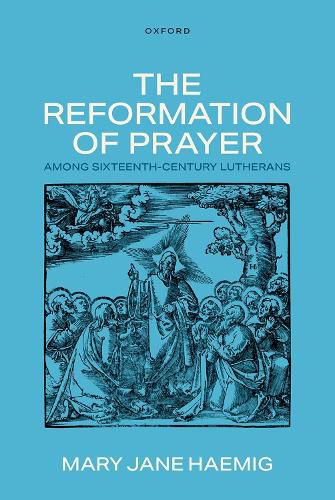Readings Newsletter
Become a Readings Member to make your shopping experience even easier.
Sign in or sign up for free!
You’re not far away from qualifying for FREE standard shipping within Australia
You’ve qualified for FREE standard shipping within Australia
The cart is loading…






In sixteenth-century Germany Martin Luther and his followers engaged in a thorough reform of beliefs and practices related to prayer, a reform rooted in Luther's theological insights. Rejecting medieval beliefs that saw prayer as a good work, Luther and his followers saw prayer as a human response to God's command to pray and promise to hear. It was a good work, done freely, not to earn salvation but rather to converse with God. Luther and his followers taught prayer in many different ways. They used catechisms and catechesis to teach the basics of Christian belief, including the Lord's Prayer. They emphasized understanding the petitions of prayer, not just reciting words. They encouraged the use of the psalms as prayers and produced literature designed to make the psalms accessible and understandable. They published prayerbooks to instruct in prayer and offer prayers for a variety of vocations and situations. Lutheran sermons taught prayer, both on particular occasions and on many Sundays of the church year. Worship taught prayer and provided models for prayer. Literature for those suffering sickness, death, plague, childbirth, and war, taught prayer as part of its effort to console. Literature for theological students and manuals designed to help pastors in their ministries contained instruction in prayer, highlighting the importance of prayer in the life and ministry of the pastor and helping them to teach prayer. This book gives a comprehensive overview of the theological underpinnings for prayer as well as the strategies and literature used by Luther and his followers as they taught prayer to all people. The reformation of prayer has not been adequately studied; this book seeks to address that gap in scholarship.
$9.00 standard shipping within Australia
FREE standard shipping within Australia for orders over $100.00
Express & International shipping calculated at checkout
In sixteenth-century Germany Martin Luther and his followers engaged in a thorough reform of beliefs and practices related to prayer, a reform rooted in Luther's theological insights. Rejecting medieval beliefs that saw prayer as a good work, Luther and his followers saw prayer as a human response to God's command to pray and promise to hear. It was a good work, done freely, not to earn salvation but rather to converse with God. Luther and his followers taught prayer in many different ways. They used catechisms and catechesis to teach the basics of Christian belief, including the Lord's Prayer. They emphasized understanding the petitions of prayer, not just reciting words. They encouraged the use of the psalms as prayers and produced literature designed to make the psalms accessible and understandable. They published prayerbooks to instruct in prayer and offer prayers for a variety of vocations and situations. Lutheran sermons taught prayer, both on particular occasions and on many Sundays of the church year. Worship taught prayer and provided models for prayer. Literature for those suffering sickness, death, plague, childbirth, and war, taught prayer as part of its effort to console. Literature for theological students and manuals designed to help pastors in their ministries contained instruction in prayer, highlighting the importance of prayer in the life and ministry of the pastor and helping them to teach prayer. This book gives a comprehensive overview of the theological underpinnings for prayer as well as the strategies and literature used by Luther and his followers as they taught prayer to all people. The reformation of prayer has not been adequately studied; this book seeks to address that gap in scholarship.